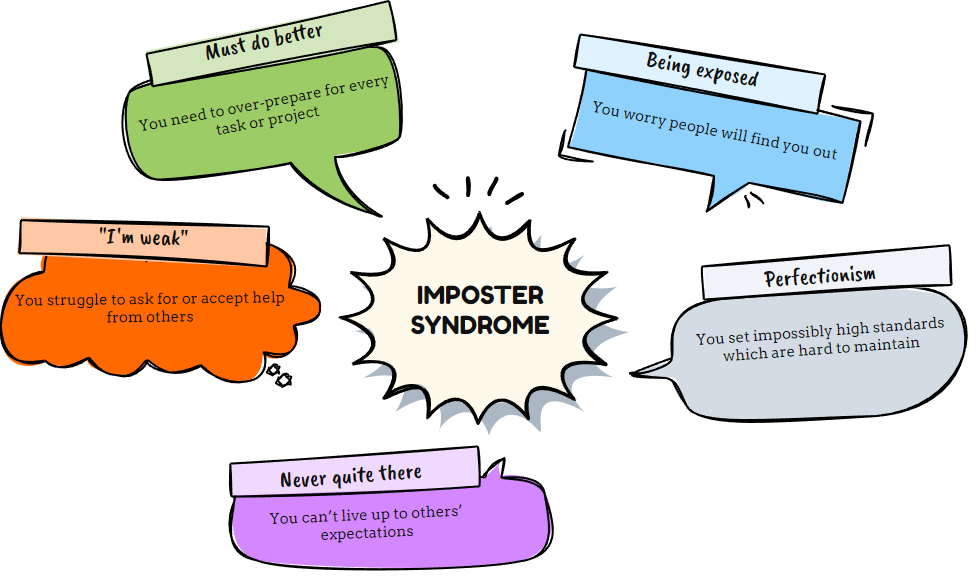What is Imposter Syndrome?

The term Imposter Phenomenon (also known as Imposter Syndrome) was developed in the late 1970s by psychologists Dr Pauline Rose Clance and the late Dr Suzanne Imes.
They found it to be a very common pattern in women, although men experienced it too. It often occurs in high-pressure healthcare, academic and professional settings.
If any of the thoughts in the above diagram sound familiar, you may yourself be experiencing Imposter Syndrome. Imagine you have to complete a work or study task. You might find yourself putting it off for as long as you can (procrastination) or spending countless hours making it perfect (over-preparation).
Procrastination can make you question your abilities as you wonder why you weren’t able to do the task earlier. You may also view any success as a lucky escape that you “got away with”.
Over-preparation is when you feel you have to put in more effort than others to get the same result… and if you can’t keep this effort up, you’ll be found out as a fraud.
You may also find yourself worrying that you won’t live up to the expectations of others. This is a tricky issue as it can be caused by a fear of failure OR a fear of success. If you fail, it shows you were 0ver-rated but if you succeed people will have even higher expectations of you.
